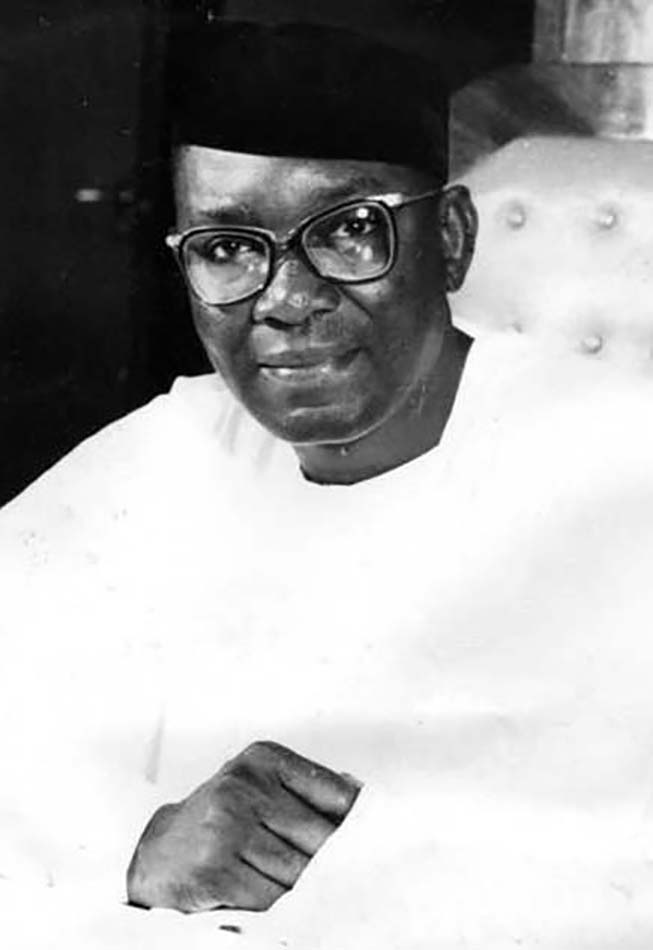Nnamdi Azikiwe was the first President of Nigeria and was instrumental in founding a string of newspapers across Nigeria.
Azikiwe was born on November 16, 1904 in Zungeru which was then the capital of Northern Nigeria. His father, Chukwumeka Azikiwe, was a civil servant in the British colonial government. Azikiwe began attending school in 1912 after enrolling in the Church Missionary Society (CMS) Niger Mission in Onitsha. Between 1912 and 1921 Azikiwe switched mostly between CMS and Wesleyan Boys High School, both in Lagos, at the request of his father. In 1921 Azikiwe passed his civil servant exam and was assigned to work in the Treasury Department in Nigeria.
Believing that education was his key to advancement in Africa, Azikiwe left Lagos in 1925 to attend Storer College in West Virginia in the United States. He also attended Howard University for a time before graduating from Lincoln University in 1930 with his Bachelor’s Degree in Political Science. By 1933 Azikiwe would also earn two Master’s Degrees in Arts and Science from Lincoln University and the University of Pennsylvania.
In late 1934 Azikiwe returned to Africa, settling in Accra, Ghana where he became the editor of the newly founded African Morning Post. With that position he began his career in the newspaper industry where he promoted African nationalism and later African independence. After returning to Nigeria in 1937 Azikiwe founded the West African Pilot and the Zik Group of Newspapers which by 1944 controlled five major publications across Nigeria.
In 1947 Azikiwe was elected to his first government position in the Nigerian Legislative Council. By 1954 he was the Premier of Eastern Nigeria where he was forced to relinquish his business interests. On October 1, 1960 Nigeria became independent of the British government and Nnamdi Azikiwe became its first indigenous Governor General. Three years later, on October 1, 1963 Nigeria was declared a republic and Nnamdi Azikiwe was elected as its first President. He shared power with the newly elected Prime Minister Abubakar Balewa.
A military coup ousted Nigeria’s government on January 16, 1966. That coup was part of a series of events that led to the Nigerian Civil War between 1967 and 1970. Nnamdi Azikiwe became the most recognized spokesman for the Igbo struggle for independence when they attempted to craft the nation of Biafra from the eastern states that seceded from Nigeria. Two years after the war ended in a Federal victory over the Biafra rebels, the central government in Lagos allowed Azikiwe to reenter public life. In 1972 he became the Chancellor of the University of Lagos, a post he held until 1976.
Nnamdi Azikiwe died on May 11, 1996 in Enugu, Nigeria.

